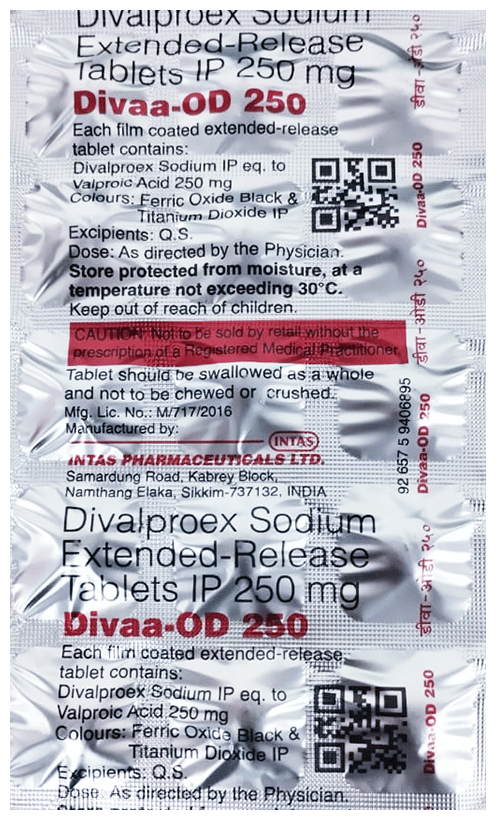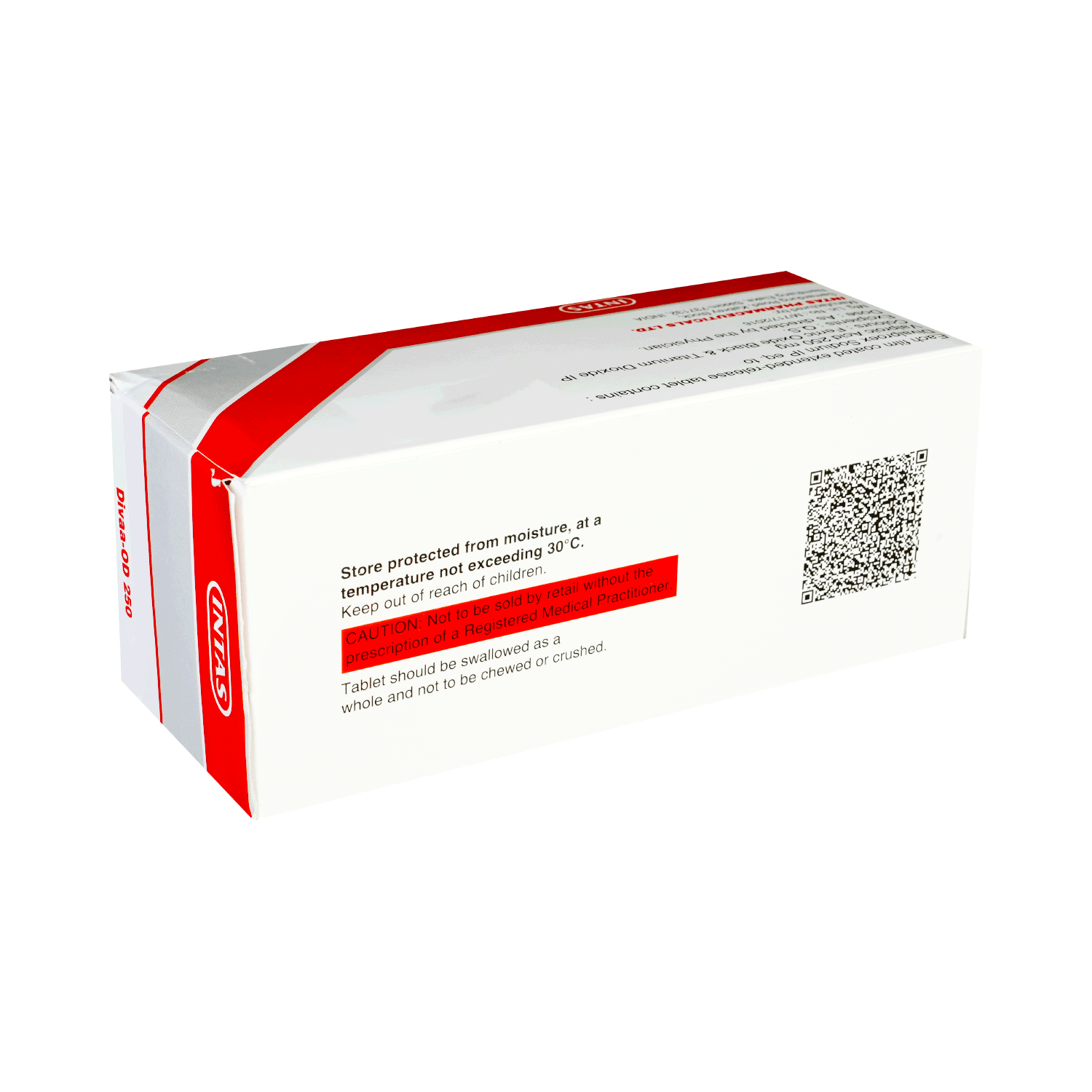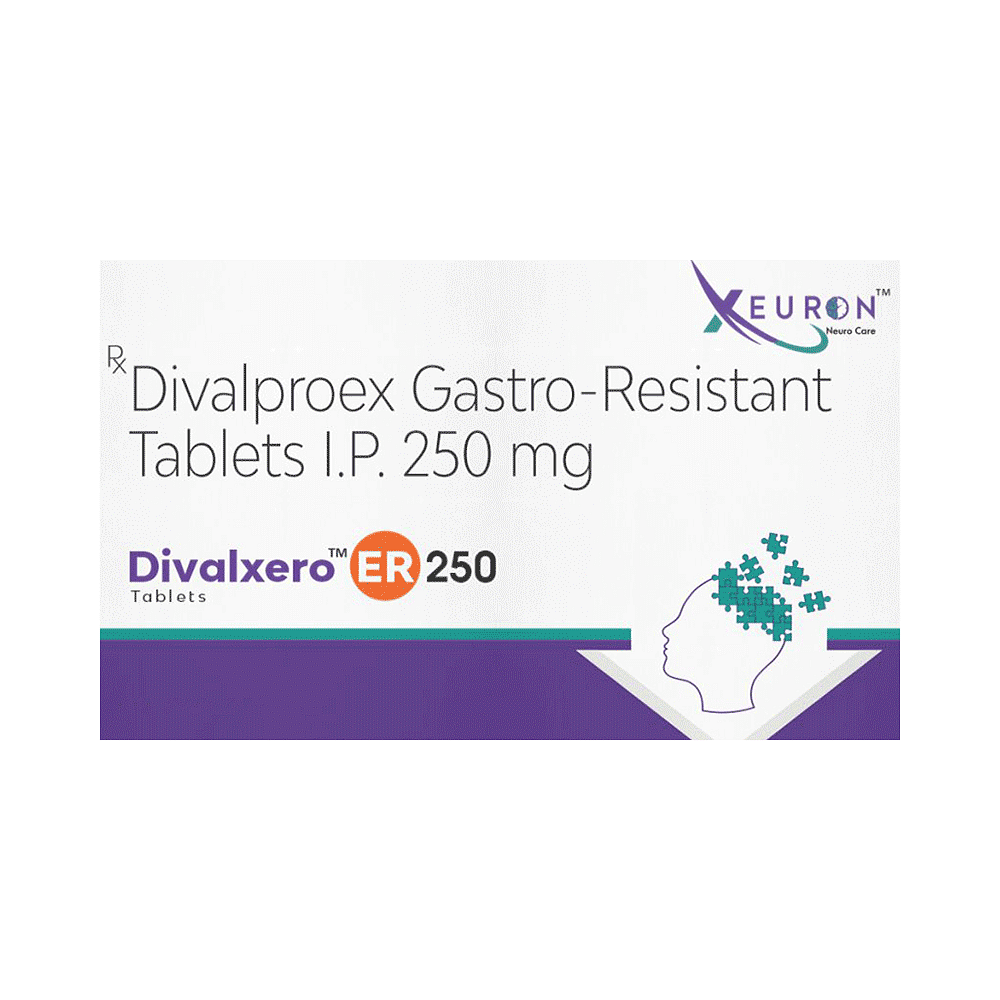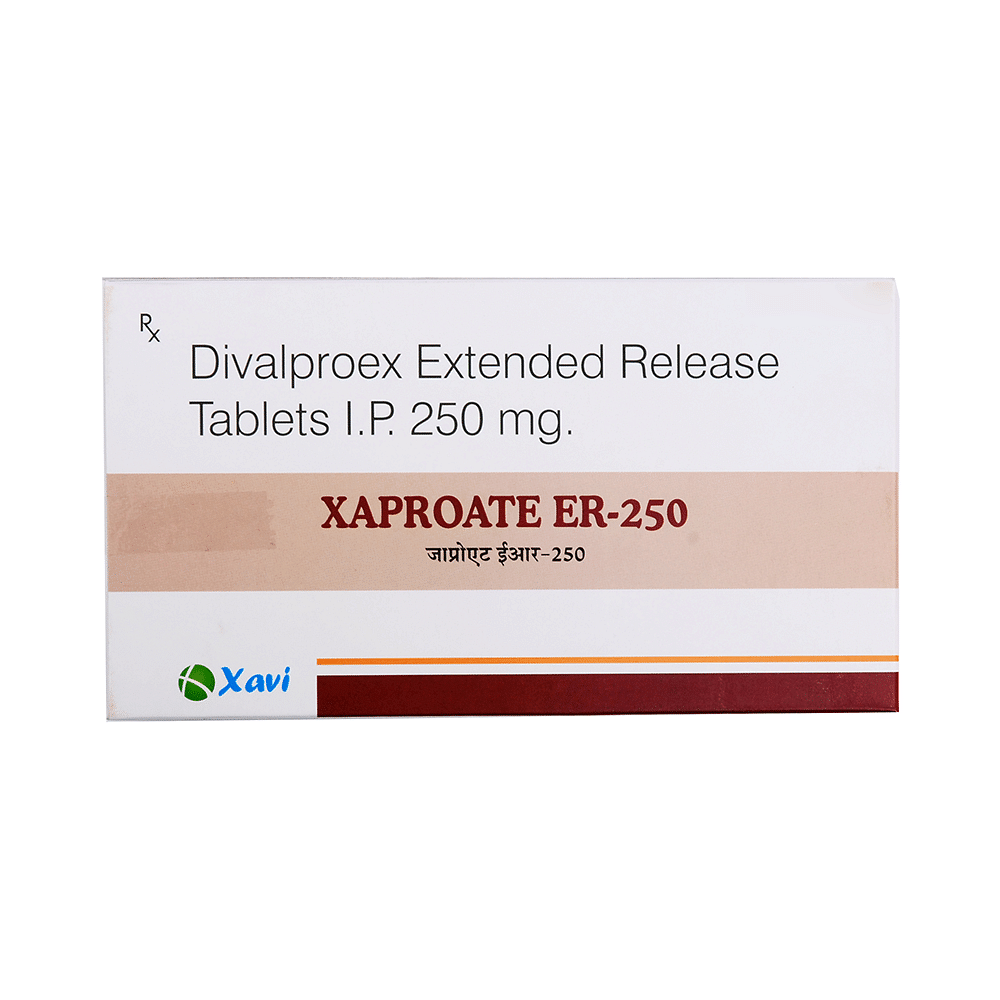
Divaltus OD 250mg Tablet ER
Manufacturer
Galanthus Pharma Private Limited
Salt Composition
Divalproex (250mg)
Key Information
Short Description
Divaltus OD 250mg Tablet ER is a medicine used to treat epilepsy, prevent and control seizures (fits), and prevent migraines. It may also be used to treat bipolar disorder.
Dosage Form
Tablet ER
Introduction
Divaltus OD 250mg Tablet ER may be used alone or in combination with other medicines. The dose and how often you need to take it will be decided by your doctor so that you get the right amount to control your symptoms. You can take this medicine with or without food but take it at the same time each day to get the most benefit. It usually takes a couple of weeks to work. It is important to take this medicine regularly and for as long as you are advised even if you feel well. Missing doses may trigger seizures and if you stop your condition may get worse. It should never be stopped suddenly.
Directions for Use
Take this medicine in the dose and duration as advised by your doctor. Swallow it as a whole. Do not chew, crush or break it. Divaltus OD 250mg Tablet ER may be taken with or without food but it is better to take it at a fixed time.
Safety Information
Side Effects
Headache Blurred vision Nausea Vomiting Dizziness Tiredness Unsteadiness Bruising Decreased body temperature
Alcohol Warning
Divaltus OD 250mg Tablet ER may cause excessive drowsiness with alcohol.
Breastfeeding Warning
Divaltus OD 250mg Tablet ER is safe to use during breastfeeding. Human studies suggest that the drug does not pass into the breastmilk in a significant amount and is not harmful to the baby.
Pregnancy Warning
Divaltus OD 250mg Tablet ER is unsafe to use during pregnancy as there is definite evidence of risk to the developing baby. However, the doctor may rarely prescribe it in some life-threatening situations if the benefits are more than the potential risks. Please consult your doctor.
Interacting Medicines
Alprazolam Chlordiazepoxide Clobazam Clonazepam
How it works
Divaltus OD 250mg Tablet ER is an antiepileptic medication. It controls seizures or fits by decreasing the abnormal and excessive activity of the nerve cells in the brain.
Quick Tips
Take your medication regularly as directed by your doctor as missing doses can trigger seizures. It can be taken with or without food but better to take with food to avoid stomach upset. Do not change the brand of your medicine and make sure that you have sufficient amount of medicine present with you. Some healthy tips to prevent seizures: Practice yoga every day, Get enough sleep at nighttime, Limit the use of screen time such as mobile/laptop, Take your medication on time, Monitor your weight during treatment with this medicine as it can cause weight gain.
Related Medicines

Divaa-OD 250 Tablet

Dicorate ER 250 Tablet

Divaa-OD 250 Tablet

Divadar ER 250mg Tablet

Valmat 250mg Tablet ER

Divalxero ER 250 Tablet

Dipolar 250mg Tablet ER

DV Exel Tablet ER

Xaproate ER 250 Tablet

Divalox 250mg Tablet ER
Frequently asked questions
What are the possible side effects of stopping Divaltus OD 250mg Tablet ER?
It's crucial to consult your doctor before changing or stopping your dosage of Divaltus OD 250mg Tablet ER. Sudden discontinuation might lead to a return of symptoms like irritability, anxiety, dizziness and tremors.
Can Divaltus OD 250mg Tablet ER be used as a mood stabilizer?
Yes, Divaltus OD 250mg Tablet ER can sometimes be used as a mood stabilizer. It's prescribed to patients experiencing rapid mood changes and helps calm the overactive activity of their brains during such changes.
Does Divaltus OD 250mg Tablet ER cause weight gain?
Yes, Divaltus OD 250mg Tablet ER can lead to weight gain. Increased hunger may be a contributing factor. It's important to keep track of your diet and exercise regularly to prevent any weight gain. Please discuss any concerns regarding weight gain with your doctor.
Does Divaltus OD 250mg Tablet ER make you sleepy?
Yes, Divaltus OD 250mg Tablet ER can cause drowsiness. Avoid driving or engaging in tasks requiring concentration until you understand its effect on your alertness.
Does Divaltus OD 250mg Tablet ER cause hair loss?
Yes, Divaltus OD 250mg Tablet ER can trigger temporary hair loss. However, it's generally dose-related and resolves over time. If you experience excessive or prolonged hair loss, please consult your doctor.
Can Divaltus OD 250mg Tablet ER cause liver damage?
Yes, Divaltus OD 250mg Tablet ER may lead to liver damage. The risk is more likely in the first six months of starting treatment with this medication. Symptoms of liver damage include nausea or vomiting, loss of appetite, stomach pain, dark urine, facial swelling, yellowing of the skin, or eyes.
Should I avoid alcohol while taking Divaltus OD 250mg Tablet ER?
Yes, avoid consuming alcohol when taking Divaltus OD 250mg Tablet ER. This medication can make you feel more drowsy, lightheaded, or dizzy when combined with alcohol.
What lab tests should be conducted before taking Divaltus OD 250mg Tablet ER?
Before starting treatment with Divaltus OD 250mg Tablet ER, your doctor may recommend blood tests. These tests include a complete blood count (CBC), including platelet count, bleeding time and coagulation tests. The purpose of these tests is to identify any potential risk factors or problems before starting the medication.
What should I do if I experience abdominal pain, nausea, and loss of appetite?
Severe abdominal pain accompanied by nausea and vomiting warrants immediate medical attention. Your doctor may order a serum amylase test to determine if pancreatitis is present. In case the test shows elevated levels of amylase (indicating pancreatitis), the medication should be discontinued immediately.
How can I determine if there's an overdose of Divaltus OD 250mg Tablet ER?
Divaltus OD 250mg Tablet ER overdose symptoms may include headaches, blurred vision (smaller pupils), loss of reflexes, confusion and tiredness. You may also experience weakness or muscle stiffness, seizures, loss of consciousness, behavioral changes, and breathing difficulties such as fast breathing or chest pain.


